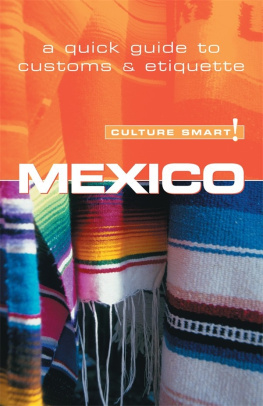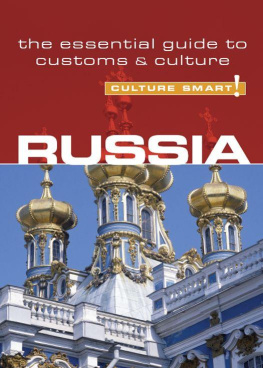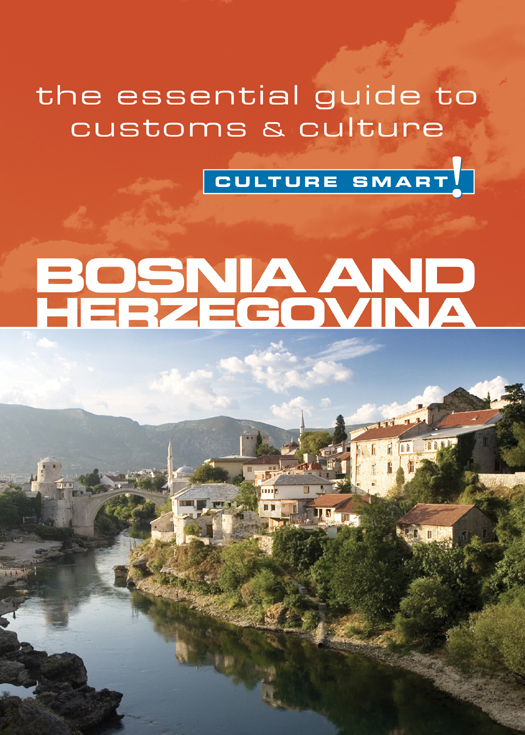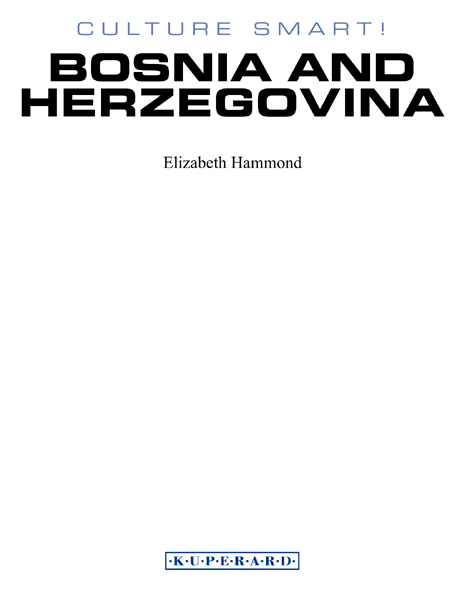First published in Great Britain 2009
by Kuperard, an imprint of Bravo Ltd
59 Hutton Grove, London N12 8DS
Tel: +44 (0) 20 8446 2440 Fax: +44 (0) 20 8446 2441
www.culturesmart.co.uk
Inquiries:
Culture Smart! is a registered trademark of Bravo Ltd
Copyright 2009 Kuperard
All rights reserved. No part of this publication may be reprinted or reproduced, stored in a retrieval system, or transmitted in any form or by any means without prior permission in writing from the publishers.
Series Editor Geoffrey Chesler
eISBN: 978-1-85733-627-6
British Library Cataloguing in Publication Data
A CIP catalogue entry for this book is available from the British Library
The photographs on (left) by permission of Melinda Walton.
Images on the following pages reproduced under Creative Commons License Attribution 2.5: Josep Renalias.
v3.1
About the Author
ELIZABETH HAMMOND has a degree in English and Clinical Psychology from Tufts University and a masters in International Health from The Johns Hopkins School of Public Health. While a professor at the University of Sarajevo on a Fulbright scholarship, she also taught at the University of Zenica and the Sarajevo Medresa. Over the course of multiple visits to the region, she studied the long-term psychological effects of the war in Bosnia and the development of the countrys health care system. Her research was presented at the Institute for Global Studies at Tufts University and at The Johns Hopkins School of Public Health.
The Culture Smart! series is continuing to expand.
For further information and latest titles visit
www.culturesmart.co.uk
The publishers would like to thank CultureSmart!Consulting for its help in researching and developing the concept for this series.
CultureSmart!Consulting creates tailor-made seminars and consultancy programs to meet a wide range of corporate, public-sector, and individual needs. Whether delivering courses on multicultural team building in the USA, preparing Chinese engineers for a posting in Europe, training call-center staff in India, or raising the awareness of police forces to the needs of diverse ethnic communities, it provides essential, practical, and powerful skills worldwide to an increasingly international workforce.
For details, visit www.culturesmartconsulting.com
CultureSmart!Consulting and CultureSmart! guides have both contributed to and featured regularly in the weekly travel program Fast Track on BBC World TV.
contents
Map of Bosnia and Herzegovina
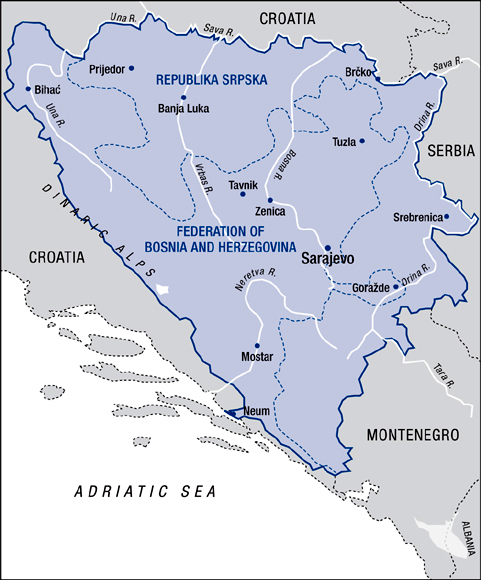
introduction
Bosnia and Herzegovina is a country of contradictions, where East meets West, and where several ideologies have come together to evolve into a vibrant, diverse culture. While there may be much that the Western visitor will find familiar in the day-to-day life here, there are differences that can be startling.
Bosnia is a unique combination of religious values, communist secularism, Western attitudes, and Eastern practices. The people are warm, open, and eager to move forwardbut are hampered by their memories of a conflict-filled past. The breathtaking landscape varies widely across the countrybut pollution is an increasing problem. The economic situation is improvingbut capitalism hasnt fully taken hold. The people espouse Western attitudesbut remain family-centered and uphold traditional gender roles. In sum, nothing can be taken for granted.
The trauma of recent history remains palpable, evidenced both by the bullet holes visible in city buildings and by a somewhat downtrodden attitude that can unexpectedly rise to the surface in your Bosnian friends and colleagues. After the devastating effects of the war in the 1990s, Bosnians today have a renewed appreciation for family and a widespread distrust of government.
Bosnia is a beautifully complex country, but it is a country at a crossroads. With its dramatic history and uncertain future, it is unlike any other part of Europe. The culture can be confusing, and the bureaucracy frustrating, even to the locals. To feel really comfortable here, its best to adopt the local attitude of what will be, will be, with shoulders shrugged and arms raised to the sky.
Culture Smart! Bosnia will help you to understand the quirks of Bosnian society and introduce you to a friendly, hospitable people who are proud of their history but pessimistic about their future. Armed with the knowledge it provides, you will be able to operate successfully in Bosnian business and social spheres alike.
The early chapters give a general overview of the history and customs of the land, and the way of life of the people. Later you will find tips on etiquette and social situations, and suggestions for dealing with specific circumstances, such as how to get prompt service in a restaurant, or how to tell a cabdriver to get you to your meeting on time. You will find out how to make contact and establish lifelong relationships with the localsand how they drink their coffee.
Despite the violence in its past, Bosnia has a great deal to offer its guests today. The well-informed visitor, armed with knowledge about the cultural context behind the dos and donts, will be rewarded with new friends, warm hospitality, and a deeper understanding of this fascinating land.
Key Facts
| Official Name | Bosna-Hercegovina (Bosnia and Herzegovina) | Declared independence in March 1992 |
| Capital City | Sarajevo Pop. 380,000 |
| Other Major Cities | Banja Luka, Mostar, Zenica, Travnik, Tuzla, Biha | The country is divided into two political entities: the Republika Srpska and the Federation. |
| Area | 19,741 sq. miles (51,129 sq. km). Nearly landlocked; short coastline on Adriatic Sea |
| Borders | Croatia, Serbia, Montenegro |
| Climate | Cold winters with heavy precipitation; warm summers | Conditions can vary widely across the country owing to the differences in terrain, including mountains, plains, valleys, and coastline |
| Currency | Bosnian Convertible Mark (BAM, or KM) | Pegged to the Euro at 2:1 |
| Population | 4,590,310 (est. 2008) |
| Ethnic Makeup | Bosniak (40%), Serb (37%), Croat (14%) |
| Language | Bosnian-Croatian-Serbian. Uses Latin script in the Federation and Cyrillic in the Republika Srpska |
| Religion | Muslim (40%), Eastern Orthodox (31%), Roman Catholic (15%), other (14%) |
| Government | Federal Demographic Republic. Bicameral parliament at federal level. Power is shared between three presidents. At local level the Federation and the RS have regional parliaments. | The Federation is made up of ten regional cantons. The RS relies on municipal governments for local concerns. |


